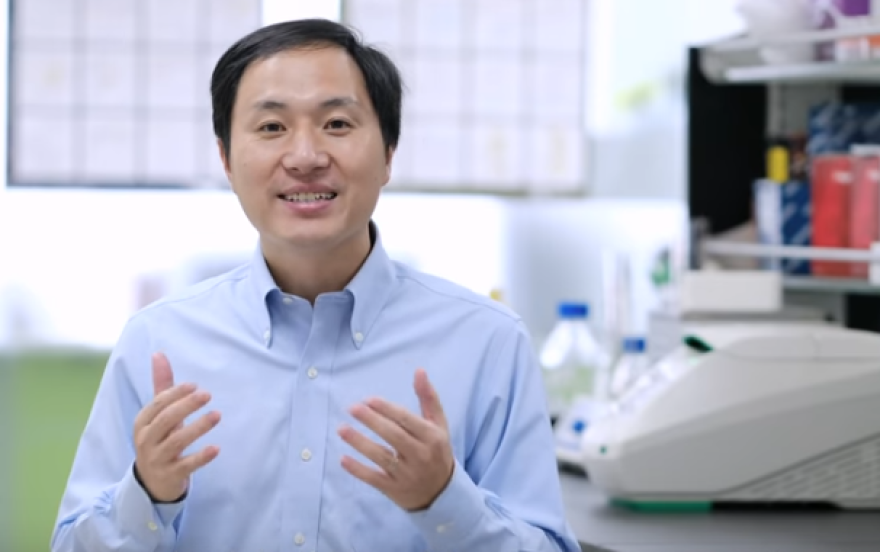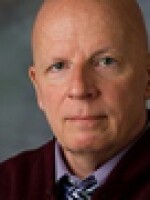Reaction has been swift to claims that a Chinese scientist worked to genetically alter twins.
China has been at the cutting edge in the research and practice of human embryonic gene editing. Researcher He Jiankui took to YouTube to announce the birth of a pair of genetically edited babies: "Two beautiful little Chinese girls named Lulu and Nana came into crying the world as healthy as any other babies a few weeks ago. The girls are home now with their mom Grace and their dad Mark."
What makes these twins special is that their father is HIV-positive, and one of their genes has been modified by CRISPR-Cas9 gene editing technology to make them naturally resistant to AIDS after birth.
Dr. Feng Zhang of MIT was in Albany in September 2017. He was a co-recipient of Albany Medical Center's Prize in Medicine and Biomedical Research for his role in developing CRISPR-CAs9. He spoke of gene editing's role as a means of immunization against disease. "There are researchers who have designed proteins that can be introduced into an immune cell to recognize other cells that cause the immunity. And so if the immune cell is engineered to recognize it, the upon recognition it can destroy those off-immunity causing cells and if that happens, then you may be able to get rid of the circulating cells that are causing the off immune reactions and be able to treat a disease."
Zhang and the world's leading CRISPR proponents and practicioners are in Hong Kong at the 2nd International Summit of Human Gene Editing, where He Jiankui turned up as a speaker. He says both babies are being continuously tracked and when they reach age 18, they will receive monitoring and support from his team — if they agree.
Serious ethical questions regarding the transparency of gene-editing are being raised; some observers call the twins’ birth the opening of a “Pandora’s Box.”
- More than half of people weighing in on China's leading social network WeChat's "Search All" hot topic list favor gene editing of babies in the hope of immunizing them against certain diseases.
Dr. Ricki Lewis is a geneticist and Adjunct Professor of Medical Education at Alden March Bioethics Institute at Albany Medical Center. "These are not lab mice or fruit flies we're talking about. They're human babies. And when you manipulate the germ line or a fertilized ovum I think that's a different scenario."
- "My biggest fear in a nutshell is that somebody somewhere will rush ahead with this technology, whether it’s to create a CRISPR baby or use it in some other way that is dangerous or damaging either to the environment or to humans." ~Jennifer Doudna of UC Berkeley
Alarm bells have sounded in the scientific world and the announcement has sparked calls for a globally binding code of conduct. "I want to put the alarm bell situation sort of in context, because other technologies, the same thing has been said, in-vitro fertilization, recombinant DNA research and then as time goes by we come to accept them, but this one's different, because it's not selecting someone with a genetic trait. It's manipulating at the fertilized ovum stage to induce that change, so it's going a step farther. A pretty big step."
Lewis sees technical and philosophical "dangers" involved in experimental gene editing. "The larger risk, bio-ethically and in terms of society is that if this technique were to become accepted it could be abused and used perhaps to enhance rather than to treat or cure or prevent a disease, and then we would really be messing around with genetic diversity and changing the population."
Lewis suspects that even if outlawed or regulated, this type of gene experimentation could continue in secret, privately funded. "It may seem like science fiction with all of the repeating of the story on Facebook and all of that, but it should actually concern anyone who is using in-vitro fertilization to have frozen their fertilized ovum, because if it does become accepted at some point, say five or 10 years from now, there might be the ability to manipulate an embryo at that one-cell stage and do some kind of a change. And if, for example, if you have a mutation for Huntington's Disease, there might be an application to get rid of the mutant gene, so it could become accepted in some situations at some point."





